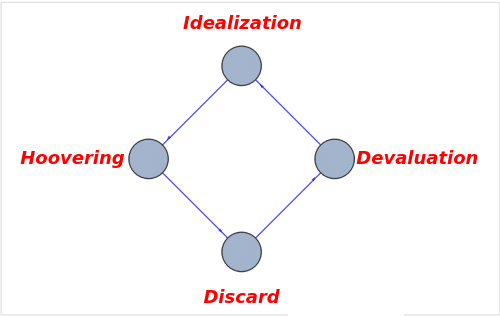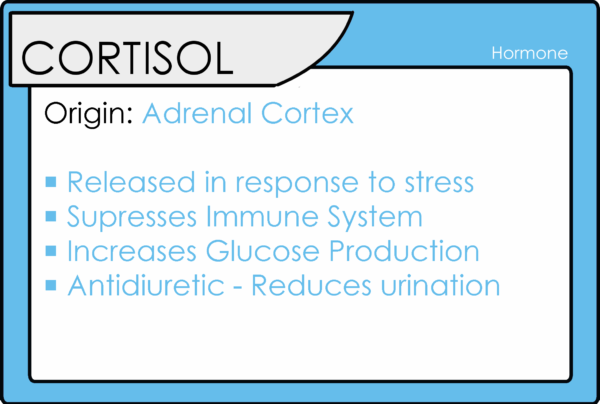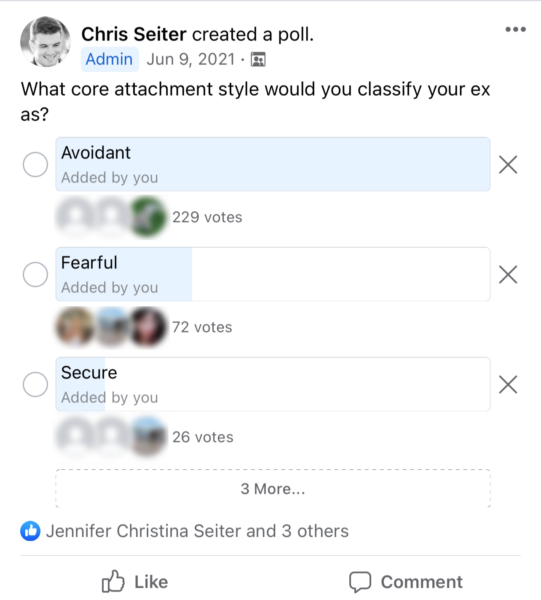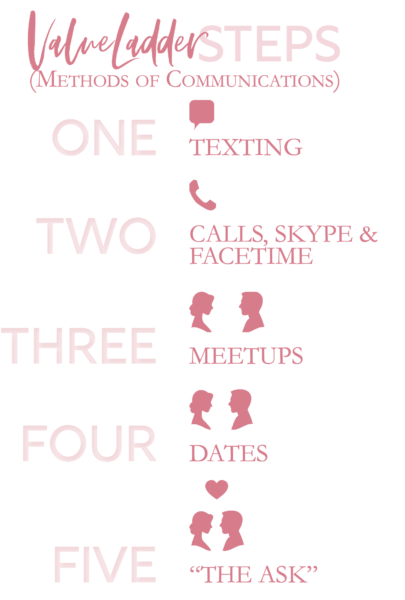Today we’re going to have an in-depth discussion on what to do if your ex boyfriend broke up with you because of depression.
Now, after thinking about this in-depth quite a lot I’ve decided to divide this discussion up into three distinct parts.
- Answering How Likely It Is That Your Ex Could Be Making Up Their Depression (Using It As An Excuse To Break Up With You)
- Listing Out The Common Factors That Contribute To Depression
- Exactly What You Should Do After Your Depressed Ex Breaks Up With You
There’s no time to waste.

What Are Your Chances of Getting Your Ex Boyfriend Back?
Take the quiz
How Likely Is It That My Ex Boyfriend Is Making Up Their Depression?
When I was researching this topic I did what I always do.
I started first looking up the statistics to see if my hypotheses were correct surrounding breakups and depression (more on that in a moment.)
And then I went to some of my peers websites and I was shocked to see that some of them were suggesting that some ex boyfriends could be using depression as a way to “spare you” for the real reason surrounding a break up.
While I’m sure there are some outliers where that happens as a general rule,
If someone tells you they are depressed, believe them.
Sure there are circumstances where a vulnerable narcissist will want to be the victim;
See the “hoovering” stage.
Most times people don’t make up depression as an excuse to break up unless they mean it.
And I think a big argument can be made that even in the case of the vulnerable narcissism, the feelings of depression are typically real.
But let’s say you have a very skeptical mind. Let’s say some of these websites you read out there convince you that your boyfriend is making their depression up.
The only way to truly tell if they are telling the truth is to look at the common factors that contribute to depression.
These Are The Common Factors That Contribute To Depression
Depression is a multifaceted mental health disorder that can manifest due to a variety of reasons.
And that’s the biggest misconception I see people have. They are looking for one smoking gun but the reality is that depression often results from a combination of factors rather than one isolated cause.
I have identified four of the biggest contributing factors:
- Biological factors
- Environmental factors
- Personality traits
- Medical Conditions
As always, let’s dive in.
Factor #1: Biological Factors
The human brain relies on a complex interplay of chemicals known as neurotransmitters to regulate our moods.
I’ve written about this a lot here and here.

What Are Your Chances of Getting Your Ex Boyfriend Back?
Take the quizEven put together some pretty handy graphics on what happens to the neurotransmitters at the…
Beginning of a relationship:
Middle of a relationship:
End of a relationship:
Serotonin, norepinephrine, and dopamine are among the most significant of these neurotransmitters.
When there’s an imbalance in the production or absorption of these neurotransmitters, it can precipitate depressive symptoms.
And guess what happens during a breakup?
Cortisol goes WAAAY up.
Oh, and lets not forget that cortisol is also considered the “stress hormone.”
Not to mention that research has demonstrated that alterations in the brain’s structure or functioning, perhaps due to injury or illness, can also contribute to depression.
Factor #2: Environmental Factors
Environmental factors present another significant influence on the onset of depression.
External circumstances and life experiences have a profound impact on our mental health.
For instance, traumatic events such as a severe accident, instances of abuse or neglect, or the devastating loss of a loved one can all be triggering events for depression.
Chronic stress and significant life changes, whether they’re related to personal relationships, financial struggles, or even a sudden shift in living conditions, can also lead to depressive symptoms.
Remember that graphic and the point I just made about cortisol?
Ya… looking pretty relevant now, isn’t it?

What Are Your Chances of Getting Your Ex Boyfriend Back?
Take the quizFactor #3: Personality Traits
Personality traits also play a crucial role in this mix.
Individuals who possess certain traits or cognitive styles may find themselves more susceptible to depression.
Those with low self-esteem, a tendency towards negative thinking or chronic worry, or those who engage in excessive self-criticism might find themselves at a greater risk for depression.
This is because these patterns of thought can reinforce feelings of worthlessness and hopelessness, which are characteristic of depression.
Factor #4: Medical Conditions
It’s important to note the potential link between certain medical conditions and depression.
There are various physical health conditions which may increase a person’s risk of developing depression.
These can include:
- Chronic pain conditions
- Hormonal disorders such as diabetes or polycystic ovary syndrome (PCOS)
- Thyroid abnormalities
- Certain neurological disorders like Parkinson’s disease or multiple sclerosis.
The link here might be a result of the chronic stress these conditions place on the individual or the direct physiological impact they have on the brain’s structure and chemistry.
So, I guess the long pole in the tent is identifying if any of these sound like your ex and then reverse engineering it to identify if your ex is being authentic.
Nevertheless, we haven’t really talked about the most important part of this article yet.
Here’s What You Should Do After Your Depressed Ex Breaks Up With You
Once again, we’re going to go with the rule of four.
There are four things I think you should do after your depressed ex breaks up with you.
- Understanding The Link Between Avoidance And Depression
- Be Ok With Giving Them Space
- Be Content With Yourself (No Matter What)
- Once You Are Content THEN Implement The Value Ladder
Let’s dive in!
Understand The Link Between Avoidance And Depression
So, I’ve made no qualms about the fact that when I’ve polled our community, I’ve found that most of the exes that our clients are trying to get back or trying to move on from are avoidant by nature.
Now, I’ve always explained avoidant individuals in the past as having a core wound where they value their independence above everything else.
This usually means that if they’re in a relationship where you’re trying to take it to the next level or do more, they often become frightened and withdraw from the relationship. Anything that threatens their independence causes them to bail.
But it got me thinking.
One of the things I’ve noticed about particularly avoidant people is that they’re actually more prone to depression, and I think the reason is because they’re often alone.
They describe themselves as lone wolves by nature, and that can be a little depressing because usually depression can set in when you’re alone a lot, locked in your own thoughts.
So, I started researching if there was a link between avoidance and depression, and I found one.
According to WebMD:

What Are Your Chances of Getting Your Ex Boyfriend Back?
Take the quizPeople of any age who have avoidant attachment styles may show symptoms of depression and anxiety.
So, this makes a lot of sense. And once you understand that avoidance and depression can go hand in hand, it gives you some insight into how you need to be handling them.
For example, you need to be okay with giving them space.
Being Ok With Giving Them Space:
I just wrote this really great article about a success story that I interviewed.
Here’s the interview in case you want to listen to it:
Success Story: He Said “I Don’t Feel In Love With You” And Then Came Back
Anyways, the woman I interviewed, Kelsey, managed to win her ex back after he claimed that he no longer loved her and wanted to move on.
What we discerned together in the interview was that he displayed numerous avoidant tendencies.
In fact, during the interview, I literally asked her,
Chris: “When you got him back, did you ask him exactly why he was feeling the way he did during the breakup, to actually say, ‘I’m not in love with you anymore’?”
Her verbatim response was,
Kelsey: “Yeah, we talked about it. And he did say that he felt like he couldn’t have his own space. I do remember that he would always ask for space and that I never gave that to him. That was something I deeply regretted after the breakup. So now we’re really good at giving each other space, and it’s so different.”
This is one of the reasons why I think the no-contact rule is such an effective strategy with avoidant individuals.
We’ve learned through researching avoidance for the past two years that an avoidant often doesn’t miss you or regret the breakup until they perceive you as unavailable and out of a relationship.
Watch this video for more information on that concept:
In other words, they need to believe that there’s no chance of the two of you ever getting back together to experience nostalgia. This is why giving your depressed ex space is actually a good thing.
You want them to have space.
Yes, there is a risk that they might become more depressed because they’re alone. But in my experience, giving them space is a bit like giving them what they want.
Because you’re not granting them space forever.
You’re providing a no-contact period where you’re neither reaching out to them nor responding to them, for their own good. This allows them to have the space they need.
The End Goal: Be Content With Yourself (No Matter What)
Once again, I’d like to draw from the compelling success story of Kelsey.
Listen here:
Success Story: He Said “I Don’t Feel In Love With You” And Then Came Back
I asked her straight up,
“Chris: Hey, what was the most important thing you took from the breakup and what worked in getting him back?”
Her exact words were,
“Kelsey: The most crucial factor was definitely finding myself more. I felt like I lost myself in the relationship before because I felt like he was part of my identity. So I thought it’s very important for me to find what I’m good at, what I enjoy doing and just continue doing that. In that process, it would be nice to get him back. But at the same time, I’m also happy with who I am. And I know that we all have things we can improve on, but just knowing that I’m content at the end of the day, whether I get him back or not, is the key. And I even told him that.”
So Kelsey essentially echoed exactly what I’ve been proclaiming for years.
As I mentioned, I interview a lot of these success stories, conducting hour-long interviews where I’m just trying to figure out what they did that worked.
Most of the time, I don’t even care if they used something that contradicted our strategy because, for me, everything’s like a data point. You can continuously learn more.
One of the things I’ve consistently seen is that people with this attitude succeed.
But here’s the key distinction. It’s not just about being content with yourself.
It’s about being content with yourself before you start interacting and trying to get your ex back, if that’s what you want to do.
So the big mistake I see people making is that they don’t undergo any significant shift in their mindset. There’s no paradigm shift that makes them think, “You know what, I’m kind of okay not getting my ex back.”
Instead, they’re so obsessed and so codependent on their ex that immediately after the no-contact rule is up, immediately after they’ve given them enough space to warrant a try at reconnection, they plunge into the conversation with their ex.
However, their ex can almost sense the anxiety or the mentality that they’re not content with themselves, that they feel like their entire world has broken apart, and they’re trying to repair that world by getting the ex back.
So, for me, what Kelsey says is right on the mark. It’s all about reaching this emotional state where you’ve outgrown your ex and you’re okay with not getting them back before you try to get them back, if that’s what you want to do.
Now, the cool part about that is it’s really about moving on from them. This is why I’ve coined it this idea of moving on without really moving on because a lot of our clients want their exes back. But it’s not something you can necessarily fake, which is why I’m not a huge fan anymore of that “moving on without moving on” phrasing.
I actually think you need to move on to get them back.
Once You Are Content THEN You Can Implement Our Value Ladder Concept
Once you are content, then you can implement our value ladder concept.
Now, our value ladder concept is essentially our game plan from a bird’s eye view approach of trying to win an ex back.
The intriguing part about the value ladder is that if you’ve followed all the steps I’ve suggested so far—giving them space, being content with yourself—usually, before you implement the value ladder, before you start trying to get them back, you need to decide whether or not you want them back anymore.
And it’s entirely okay if you don’t want them back anymore.
But if you do want them back, you need to get them back in the right way.
You’re most likely dealing with an avoidant ex who is depressed.
This means you need to exercise incredible patience and afford them space.
A significant part of what you’ll be doing is implementing this mirroring concept—when they pull back, you pull back. But you’re also going to be ascending the value ladder.
- This means you’re going to engage them in text messages and build value there.
- Once you’ve cultivated enough value, you can transition to the phone call phase and build value there.
- Once you’ve accumulated enough value there, you can progress to the meet-up phase, build value there.
- Then, move to the medium date phase, build value there.
- Then, advance to the romantic date phase, build value there.
Usually, if you’ve reached the top of the ladder, they’re in an emotional state where they’re open to reuniting with you.
However, it’s a very slow and methodical process. I often liken it to a tide.
It’s like the tide slowly rising.
It happens so subtly that if you’re paying attention moment by moment, you don’t really notice it occurring.
That is the same mentality that you need to have when it comes to dealing with these types of exes.








